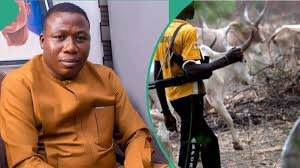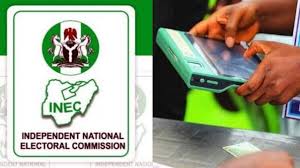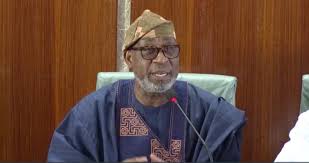Research by a UK-Nigerian research team examining the role of WhatsApp in Nigeria’s 2019 elections has identified the opportunities and threats posed by the messaging platform for Nigeria’s democratic process. Drawing on citizen surveys and interviews with political campaigns, the report underlines the ways in which WhatsApp has promoted the spread of “fake news” around elections, but has also strengthened accountability and promoted inclusion in other areas.
Researchers from the Centre for Democracy and Development (Nigeria) and University of Birmingham (UK) recently presented key findings from a WhatsApp-sponsored research project on the role of WhatsApp in Nigeria’s 2019 elections. WhatsApp is the most popular messaging app in 40 African countries, including Nigeria, due to its low cost, encrypted messages, and the ability to easily share messages with both individuals and groups. According to the team, the aim of the research project was to shed light on how the app is influencing Nigerian elections, particularly in light of concerns – in Nigeria, and across the globe – about social media usage and the spread of so-called “fake news”.
Dr Jonathan Fisher (University of Birmingham) led the research team, which included Idayat Hassan (Centre for Democracy and Development), Jamie Hitchen (Independent Consultant) and Professor Nic Cheeseman (University of Birmingham).
With particular focus on governorship races in Oyo and Kano, the research found that: the political use of WhatsApp is becoming increasingly sophisticated and organized at the state and presidential level. A statement by the research team noted that by setting up multiple overlapping WhatsApp groups, organizations such as the Buhari New Media Centre (BNMC) and Atikulated Youth Force (AYF) – set up to support, respectively, the campaigns of President Buhari and his main opponent, Atiku Abubakar – can send messages to tens of thousands of people at the touch of a button by forming hundreds of groups of 256 members. The research also observed that things look very different below the national level, however, where a significant proportion of activity remains informal. This limits the ability of formal structures like parties to set and control narratives at the local level.
Research team lead, Dr Fisher said of the findings: “our research shows that while WhatsApp replicates existing political patron-client networks to some extent, it is also helping less traditional power-players to enter the political arena – particularly tech-savvy youth.” Subsequently, the research observed that the different types of content shared via WhatsApp have varying impacts depending on who they have been shared by, and how they are presented to the user. Idayat Hassan a member of the research team, and Director at the Centre for Democracy and Development observed that:“the format, style, source and the content of a piece of information shared or received on WhatsApp all have a critical impact on how far they reach, and how far they are believed…pictures and videos are increasingly influential.”
Another key issue, which the report brings to the fore has to do with the nature of networks, deploying whatsapp as a tool to influence political behaviour. It notes that offline and online structures are interlinked, reinforcing and building on each other in ways that are important to understand. As a result, in many respects WhatsApp amplifies the significance and influence of networks that already exist within Nigerian politics and society. Another member of the research team Jamie Hitchen noted that “the interaction between information shared on WhatsApp and the offline context is a crucial part of the digital eco-system, and challenges claims that the platform has revolutionised political campaigning.”
However, in terms of impact, the research found that WhatsApp is used to both spread disinformation, and to counter it. An example is found in one of the most notorious messages of the election – the false story that President Buhari had died and been replaced by a clone from Sudan. The story was widely circulated on WhatsApp. But candidates also used WhatsApp to alert citizens to false stories and to “set the record straight”. This point was stressed by Professor Cheeseman of the University of Birmingham, who stated that: “Social media platforms are both a threat to democracy and a way to strengthen it. WhatsApp is being used to spread “fake news” on the one hand, and run fact-checking campaigns and election observation on the other. The challenge is to reduce risks without undermining the way that social media can strengthen accountability and promote inclusion.”
Based on these findings, the research went on to proffer long and short term recommendations to wade off the threats, while harnessing the opportunities posed by Whatsapp to the democratic process. The research recommends that in the short-term, possibilities should be explored to make it easier for individuals to leave WhatsApp groups and report disinformation, while reinforcing the ability of group administrators to set standards. The research also talks about targeting digital literacy training to social influencers and strengthen WhatsApp’s ability to understand the risk of misuse by opening an office in the African continent. ”In the longer-term, state and federal governments should invest more in digital literacy as part of the national curriculum, while political campaigns should develop social media codes of conduct for future elections. Online protection of data and civil liberties should also be enhanced in Nigeria, and beyond,” the team recommended.























